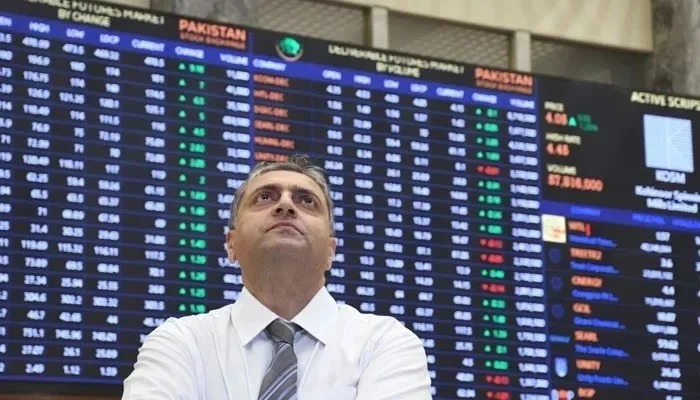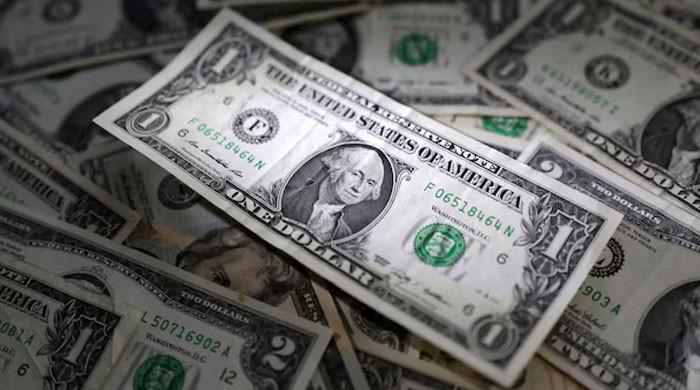PSX slips as investors play safe ahead of monetary policy announcement
Lower-than-anticipated interest rate cut dragging down market, according to analyst
January 27, 2025

- KSE-100 Index closes at 113,520.32, down 1.18%.
- Index falls by 1,360.16 points from the previous session.
- Intraday high of 115,596.87 reached before sharp decline.
Bearish sentiment dominated trading on Monday, with the stock market facing selling pressure due to concerns over interest rate policy, weak corporate results, and political uncertainty.
The Pakistan Stock Exchange’s (PSX) benchmark KSE-100 Index closed at 113,520.32, marking a decline of 1,360.16 points or -1.18% from the previous session’s close of 114,880.48.
During the session, the index reached an intraday high of 115,596.87 before retreating to a low of 113,482.22.
"The decline is partly due to market pricing in a lower than 100bps interest rate cut in today's Monetary Policy Committee (MPC) meeting, and weak results from a major large-cap and widely held stock, MARI," said Muhammad Saad Ali, Director of Research at Intermarket Securities Ltd.
He also attributed the decline to negative reactions following the announcement of a gas tariff increase for captive power plants.
Uncertainty surrounding the political landscape continues to cloud investor sentiment. Negotiations between the government and PTI remain at an impasse, with conflicting statements about their future.
PTI Chairman Barrister Gohar Ali Khan announced that talks were on hold due to the government’s lack of cooperation and delays in forming a judicial commission to probe violent incidents in May and November 2023.
Commenting on the bearish outlook, Managing Director and CEO of Arif Habib Commodities Ahsan Mehanti, said: “Stocks are bearish amid a rout in global equities and weak global crude oil prices.”
“Uncertainty over the outcome of government-PTI talks and concerns over the Tax Laws Amendment Bill 2024 limiting the ability of non-filers to purchase stocks have also played a catalytic role in the bearish activity,” he added.
The international oil price witnessed a 3% week-on-week decline amid concerns over US President Trump’s plan to boost US oil production, further dampening investor sentiment.
On the economic front, inflationary pressures have eased, with the Sensitive Price Index (SPI) rising by only 0.52% year-on-year for the week ending January 23. Economists now forecast that January’s Consumer Price Index (CPI) could fall below 3%, potentially reaching 2.5%, which would mark the lowest level since November 2015.
Pakistan recently agreed to a $1 billion loan from two Middle Eastern banks at interest rates of 6-7%, raising concerns about the country’s rising debt servicing burden. Meanwhile, international oil prices declined by 3% week-on-week, partly due to concerns over U.S. production plans.
Textile exports provided some relief, rising 9.7% year-on-year in the first half of FY25, amounting to $9.1 billion. Power generation also increased by 1% in December 2024, offering a marginal boost to the economic outlook. However, SBP’s foreign exchange reserves declined by $276 million last week, settling at $11.5 billion, sufficient to cover over two months of imports.
On Friday, the market saw a brief recovery, with the KSE-100 Index gaining 842.69 points, or 0.74%, to close at 114,880.48 after touching an intraday high of 115,779.05. Despite the session’s positive close, the index posted a week-on-week decline of 392 points or 0.34%.











